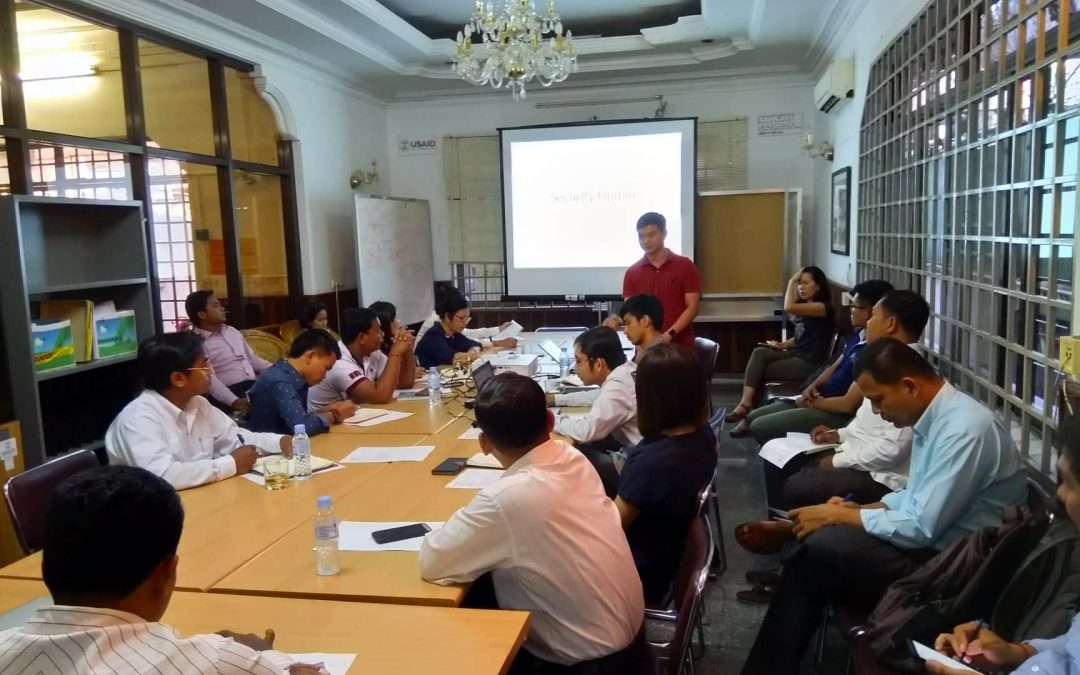In 2018, the 1st quarterly meeting of ICT for Social Advocacy (ICT4SA) was organized to share and employing ICT solutions in support of social advocacy in Cambodia. The meeting is jointly facilitated between the ICT4D Cambodia Network Project funded by SPIDER and implemented by the Open Development Cambodia, and the Cambodian Civil Society Strengthening Project funded by USAID and implemented by EWMI. The meeting was held on the 20th of March, 2018 at ODC/EWMI attended by different 16 organizations working in relation to the social and advocacy issues in Cambodia and most are partners with CCSS-EWMI project.
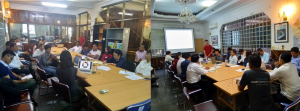
ICT4D for social advocacy group in March 2018
Participants: 21ps (4ps of women)
LAC, NAS, 3SPN, HA, PKH, InSTEDD, DI, CCSP, WMC, ISC/EWMI, ODC, EWMI, TI, BCV, NGOF, MVI
Presentation and discussion:
- Reporting and updating the result of ICT4D meeting on social advocacy issues in 2017 by Mr. Mak Puthea, Coordinator, ICT4D Cambodia Network
There was a result from 2017 include 4 meetings of social advocacy group conducted per quarterly basis. Therefore, “Pre-training” was designed in agenda in every ICT for social advocacy meeting to share on ICT and technology knowledge and tip on practical available technology tools that assist organizational management system for instance, M&E, and support communication project between local and center communication project implemented by ICT-NGOs in Cambodia.
In 2018, we will organize 3 to 4 meetings of social advocacy group that provide a platform of meeting, engaging, and communicating between tech-based organizations, ICT and non-ICT NGO projects to learn from each other. Also an annual ICT4D national workshop that the ICT4D Cambodia Network together with its partners will conduct at the end of the year to bring all government, CSOs/NGOs, private sectors, and individual to sharing, presenting, coaching, and discussing ICT4D in Cambodia.
- ICT tools for scaling social impact project: The real case of using Voice and SMS based GIS mapping tools, by Ms. Suy Channe, Regional Lead, InSTEDD iLab Southeast Asia
InSTEDD is a tech-based organization based in the US and in partnership with Google.org, it was launched first iLab in Phnom Penh,
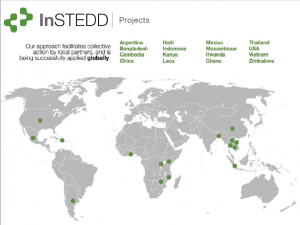
InSTEDD projects global
Cambodia in 2008. InSTEDD has been working with big and small-scale project among government, private sectors, and CSOs/NGOs to improve health, safety and development in the globe.
In Cambodia, there have many projects been done and implementing with specially Ministry of Health on outbreak diseases reporting system (115 project), and built an open source tools for CSOs/NGOs to enhance collaboration, share knowledge, and improve information flow to better delivering services in their communities.
The rapid increased of mobile phone and internet subcribtions are main reason given the result of how Cambodian access to technology is improved to offering opportunity to scale social impact project
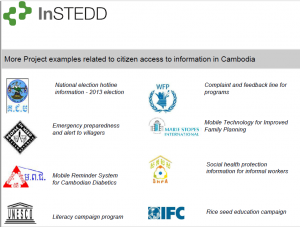
InSTEDD projects in Cambodia
through using available communication technologies that enable broader access to information to Cambodian people. Since 2015, there over 20 million mobile phone subscribers and over 5 millions of internet subscriptions in Cambodia (Telcom Regulator of Cambodia).
How best design/apply appropriate technology solution for local context?
- Human center design and rapid field validation
| -Problem driven instead of technology driven | -Design iteration |
| -Study user’s context, behavior, knowledge and access to devices | -Design for scale |
| -Early field validation | -Partnership |
| -Validate design assumption | -Sustainability in the solution design |
| -Getting feedback | |
| -Rapid prototyping |
- Digital security update by Mr. Sok Ty, ISC/EWMI
- The world’s largest DDoSattack took GitHuboffline
DDoS attacks recently hit GitHub. Its attack is wether a person/group uses a piece of software to send amount of message request to a website. When people trying to access to the website at the same it’s like overloading to force the system of website slow down or even crash and shut down the website. By the ways, with the help of Akamai Prolexic.
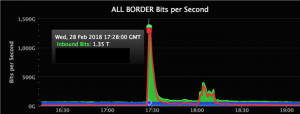
DDoSattack
- Within 10 minutes it had automatically called for help from its DDoSmitigation service, AkamaiProlexic.
- The DDoSattack featured an unusual way of amplifying its power, relying on UDP-based memcachedtraffic.
- 5.5 had Insufficient control of Network Message Volume vulnerability in the UDP support of the memcachedserver
The state of Mac malware
- 1-OSX.MaMi(DNS + root certificate installed)
- 2-Dark Caracal (RAT)
- 3-OSX.CreativeUpdate(MacUpdate+ malicious links)
- Mac malware increased 270% in 2016 & 2017
- Play Protect had huge impact on security in 2017
- Play Protect automatically scans Android devices for malicious software. It uses machine learning to identify and remove those apps.
- The feature was responsible for the removal of 39 million “Potentially Harmful Apps” (PHAs)

